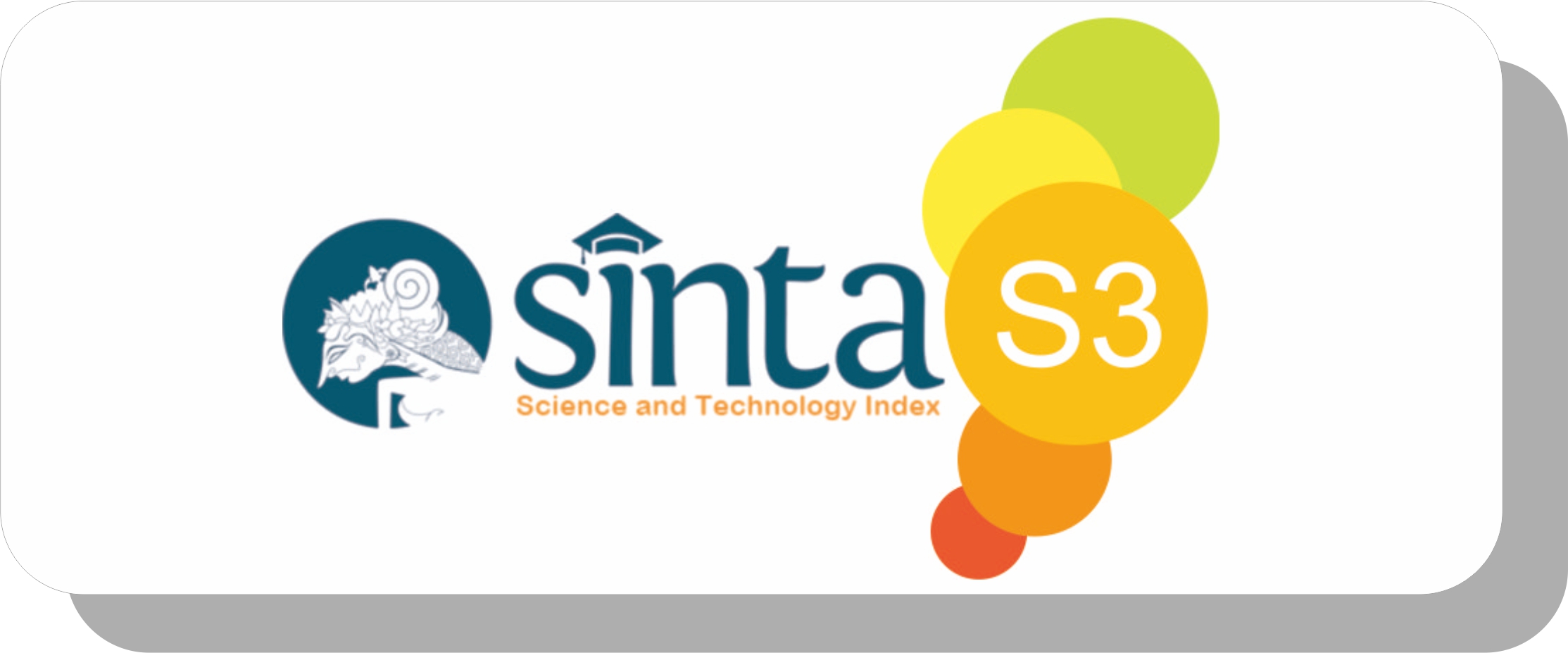Digital Government and Covid 19: A Structured Literature Review
DOI:
https://doi.org/10.22219/jurnalsospol.v9i1.27455Keywords:
Digital, Government, Technology, Covid-19, Public, SocietyAbstract
The COVID-19 pandemic has hindered government performance. Therefore, innovation through the implementation and improvement of digital government is the primary key. The purpose of this study is to undertake a systematic review of published works on the subject of Digital Government. The purpose of this study is to ascertain the trend of studies on the development of digital government models conducted by numerous governments during the Covid-19 epidemic. This study does descriptive analysis on primary data gathered from the Scopus database under the keywords digital government and Covid-19 for the timeframe 2020-2021. The data is then processed and visualized with Vos-Viewer which shows that data, policy, health, innovation, effect and digital transformation are the most dominant concepts. These concepts are the dominant or massive focus previously studied. The contribution of this research is a reference for many countries to innovate internet-based public services to be more efficient and effective. This research is limited because the data source only comes from Scopus. Therefore, in order to produce a comparative, broad and comprehensive analysis, further studies need to include sources of other reputable international journals such as the Web of Science (WoS).
Downloads
References
Alvandi, A. O., Bain, C., & Burstein, F. (2021). Understanding digital health ecosystem from Australian citizens’ perspective: A scoping review. PLoS ONE, 16(11 November 2021), 1–26. https://doi.org/10.1371/journal.pone.0260058
Calzada, I. (2020). Platform and data co-operatives amidst European pandemic citizenship. Sustainability (Switzerland), 12(20), 1–22. https://doi.org/10.3390/su12208309
Firdaus, I. T., Tursina, M. D., & Roziqin, A. (2021). Transformasi Birokrasi Digital Di Masa Pandemi Covid-19 Untuk Mewujudkan Digitalisasi Pemeritahan Indonesia dalam studi “ The Microsoft Asia Digital Transformation : Enabling The Intelligent Presiden Joko Widodo pada Rapat Terbatas mengenai Perencanaan Tr. Kybernan: Jurnal Stdui Kepemerintahan, 4(2), 226–239.
Gabryelczyk, R. (2020). Has COVID-19 Accelerated Digital Transformation? Initial Lessons Learned for Public Administrations. Information Systems Management, 37(4), 303–309. https://doi.org/10.1080/10580530.2020.1820633
Gorelova, I., Dmitrieva, D., Dedova, M., & Savastano, M. (2021). Antecedents and consequences of digital entrepreneurial ecosystems in the interaction process with smart city development. Administrative Sciences, 11(3). https://doi.org/10.3390/ADMSCI11030094
Joyce, P. (2021). Public governance, agility and pandemics: a case study of the UK response to COVID-19. International Review of Administrative Sciences, 87(3), 536–555. https://doi.org/10.1177/0020852320983406
Karagul, B. I., Seker, M., & Aykut, C. (2021). Investigating students’ digital literacy levels during online education due to covid-19 pandemic. Sustainability (Switzerland), 13(21), 1–11. https://doi.org/10.3390/su132111878
Kharlamov, A. A., Raskhodchikov, A. N., & Pilgun, M. (2021). Smart city data sensing during covid‐19: Public reaction to accelerating digital transformation. Sensors, 21(12). https://doi.org/10.3390/s21123965
Khlaif, Z. N., Salha, S., Fareed, S., & Rashed, H. (2021). The hidden shadow of coronavirus on education in developing countries1. Online Learning Journal, 25(1), 269–285. https://doi.org/10.24059/olj.v25i1.2287
Kuc-Czarnecka, M. (2020). COVID-19 and digital deprivation in Poland. Oeconomia Copernicana, 11(3), 415–431. https://doi.org/10.24136/OC.2020.017
Lim, D. H., & Lee, D. W. (2021). Non-face-to-face public services and perceptions of public organizations. Sustainability (Switzerland), 13(21), 1–15. https://doi.org/10.3390/su132112185
Malays Sari Sakti, E., Suhandono, E., & Sari, Y. (2020). Tatanan Normal Baru Di Masa Pandemic COVID-19 Dengan Literasi Digital. Ikraith-Abdimas, 4(2), 114–118.
Martin, A. (2021). Aadhaar in a box? Legitimizing digital identity in times of crisis. Surveillance and Society, 19(1), 104–108. https://doi.org/10.24908/ss.v19i1.14547
Meisters, R., Putrik, P., Westra, D., Bosma, H., Ruwaard, D., & Jansen, M. (2021). Is loneliness an undervalued pathway between socio-economic disadvantage and health? International Journal of Environmental Research and Public Health, 18(19). https://doi.org/10.3390/ijerph181910177
Mihalis, K. (2020). Ten technologies to fight coronavirus. European Parliamentary Research Service, April, 1–20. https://www.europarl.europa.eu/RegData/etudes/IDAN/2020/641543/EPRS_IDA(2020)641543_EN.pdf
Nikiforova, A. (2021). Smarter open government data for society 5.0: Are your open data smart enough? Sensors, 21(15). https://doi.org/10.3390/s21155204
Peleg, M., Reichman, A., Shachar, S., Gadot, T., Tsadok, M. A., Azaria, M., Dunkelman, O., Hassid, S., Partem, D., Shmailov, M., Yom-Tov, E., & Cohen, R. (2021). Collaboration between government and research community to respond to covid-19: Israel’s case. Journal of Open Innovation: Technology, Market, and Complexity, 7(4). https://doi.org/10.3390/joitmc7040208
Pratiwi, P. (2020). Menuju Pemerintahan Elektronik Yang Transformatif Pratiwi. Jurnal Wacana Kinerja: Kajian Praktis-Akademis Kinerja Dan Administrasi Pelayanan Publik, 23(2), 2018–2021. https://doi.org/10.31845/jwk.v23i2.689
Rachmawati, R., Mei, E. T. W., Nurani, I. W., Ghiffari, R. A., Rohmah, A. A., & Sejati, M. A. (2021). Innovation in coping with the covid-19 pandemic: The best practices from five smart cities in Indonesia. Sustainability (Switzerland), 13(21), 1–30. https://doi.org/10.3390/su132112072
Raghavan, A., Demircioglu, M. A., & Orazgaliyev, S. (2021). Covid-19 and the new normal of organizations and employees: An overview. Sustainability (Switzerland), 13(21), 1–19. https://doi.org/10.3390/su132111942
Wasistiono, S. (2019). ASPEK PEMERINTAHAN dan PERUBAHAN KOMPREHENSIF ERA DIGITAL. Jurnal Ilmu Pemerintahan Widya Praja, 45(1), 1–16. https://doi.org/10.33701/jipwp.v45i1.350
Downloads
Published
How to Cite
Issue
Section
License
Copyright (c) 2023 Sugeng Winarno, Salahudin

This work is licensed under a Creative Commons Attribution-ShareAlike 4.0 International License.
Authors who publish with this journal agree to the following terms:
- Authors retain copyright and grant the journal right of first publication with the work simultaneously licensed under a Creative Commons Attribution-ShareAlike 4.0 International License that allows others to share the work with an acknowledgement of the work's authorship and initial publication in this journal.
- Authors are able to enter into separate, additional contractual arrangements for the non-exclusive distribution of the journal's published version of the work (e.g., post it to an institutional repository or publish it in a book), with an acknowledgement of its initial publication in this journal.
- Authors are permitted and encouraged to post their work online (e.g., in institutional repositories or on their website) prior to and during the submission process, as it can lead to productive exchanges, as well as earlier and greater citation of published work (See The Effect of Open Access).

This work is licensed under a Creative Commons Attribution-ShareAlike 4.0 International License.


















